It’s a typical bustling morning at Kampung Air Hujung in Semporna. Children’s laughter echoes through the village as they dart playfully between homes while adults hurry along the narrow wooden planks, heading to their daily work.
By 9am, the small grocery stalls open their doors, offering essentials to the community.
With their fresh catch in hand, fisherfolk make their rounds from house to house, hoping for a quick sale.
Amid this modest village, nestled among the wooden houses and humble roadside stalls, lies an unexpected sanctuary of learning.
Universiti Alternatif is no grand institution with towering lecture halls or sprawling green campuses.
Instead, it is a modest brown house surrounded by a lush farm, with wooden tables and chairs set outside for lessons under the open sky.
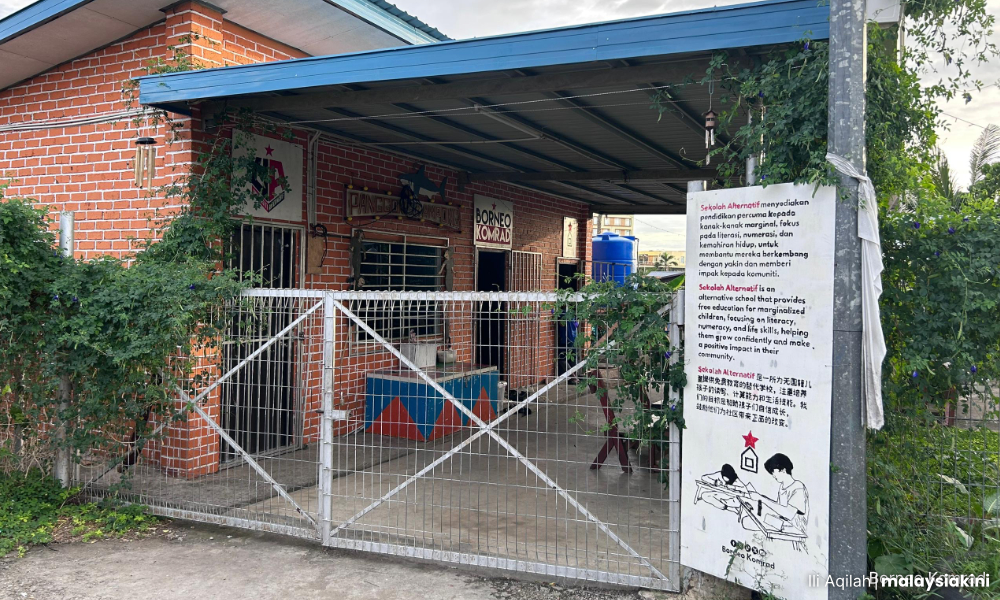
The university shares its space with a school, run by the Sabah-based NGO Borneo Komrad.
Together, they offer a lifeline to marginalised children and youth who, without proper documentation, are excluded from Malaysia’s formal education system.
Universiti Alternatif is a beacon of hope for these young minds, a place where their dreams take shape.
Though unaccredited and operating outside the formal system, the university provides invaluable lessons in film-making, photography, entrepreneurship, and even the history of their community, the Bajau Laut.
Since opening its doors in July, it has welcomed students eager to learn and grow despite the challenges they face.
Hunger for knowledge
One of these students is Bilkuin Jimi Salih, who travels from Omadal Island, a journey of about 30 minutes by boat.
His journey began at another alternative school in his hometown, Iskul Sama DiLaut, where he mastered basic skills before deciding to pursue education for his and his family’s future.
“I grew up in a poor family,” Bilkuin shared, his voice steady but laced with emotion.
“My father rents a boat to fish, while my mother takes care of the household. We only eat if my father manages to catch something, so there were days I went to school hungry.”
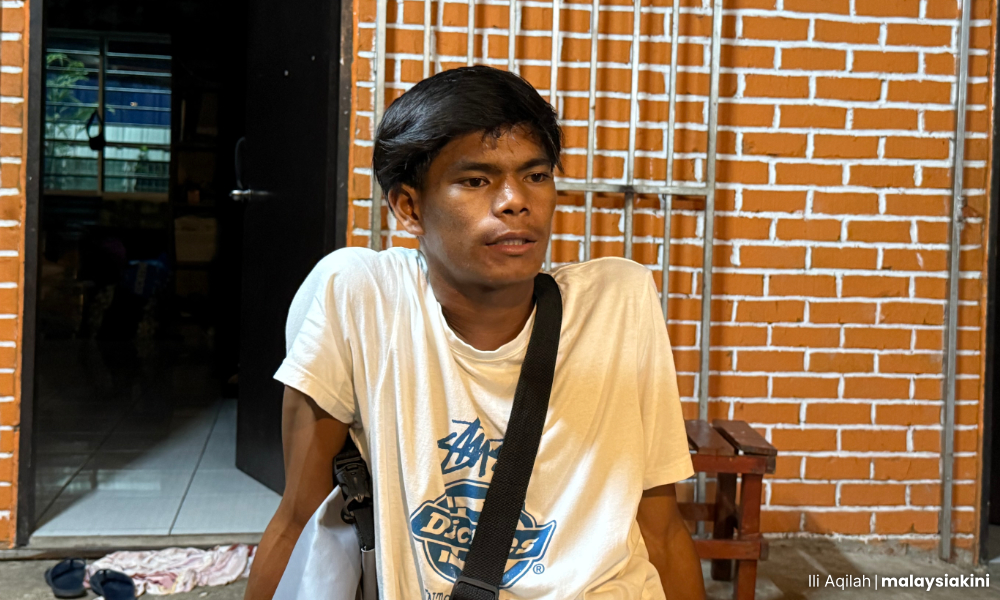
After completing his basic education, Bilkuin became a community teacher to give back to his village. But his hunger for knowledge remained.
“Teaching made me proud, but I wanted to learn more, about my history, about why we are marginalised. I know education is the only way to help my family,” he said.
Bilkuin attends classes at Universiti Alternatif twice a week, determined to build a better future.
One of his dreams is to secure proper documentation.
“When I enrolled, the teacher asked me about my dreams. Marriage isn’t part of my plans because, being undocumented, I don’t want my future children to face the same struggles.
“With my teacher’s help, I’m now looking for ways to get citizenship. I was born here. My family has lived here for generations. I am Malaysian. But without documentation, I’m invisible,” he shared.
For another student, Nur Aina Ghalib from Mabul Island, education has become the key to her dream of opening a diving school.
Aina grew up in poverty and lost her mother to illness a few years ago. To support her family, she worked at a resort before starting a business crafting crocheted sea-life keychains as eco-friendly souvenirs.
“They offer tourists an alternative to taking seashells or other things from the island, which we discourage,” she explained.
“I earn more making these keychains than I did at the resort, so I realised that business is the way to help my family.”
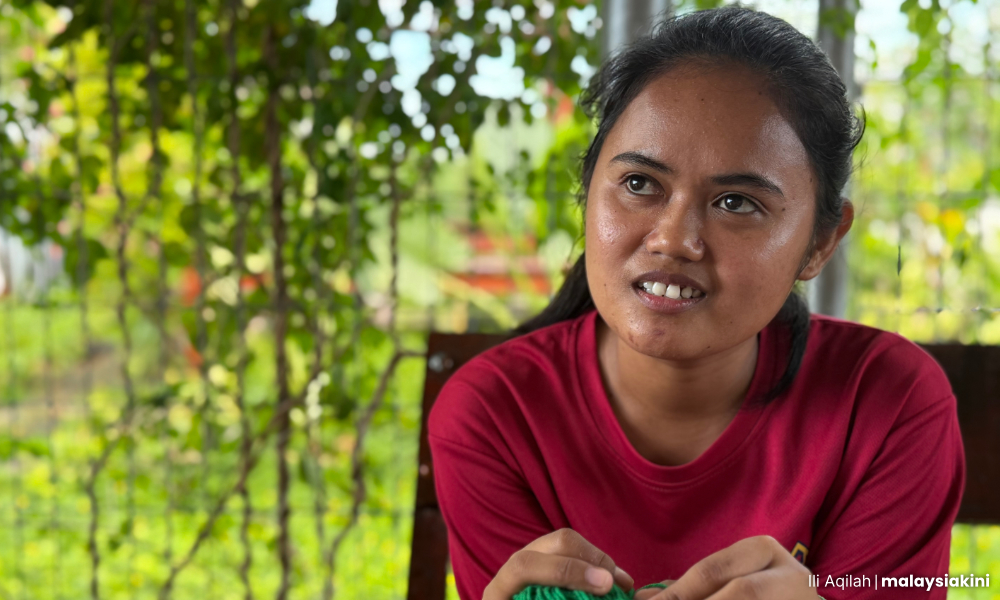
Aina is also on track to becoming a certified dive master, a journey inspired by a local diving school owner who saw her potential.
“They funded my previous licenses, including Rescue Diver. Now, I’m focused on learning how to set up my own diving school while continuing my education at Universiti Alternatif,” she said.
Beyond business, Aina enjoys poetry recitation and literary discussions in class.
“We’re currently reading Laskar Pelangi, an Indonesian novel about children from a poor village who never gave up on education.
“It resonates deeply with me. I’m thankful my teachers encouraged me to join this university. I’ve learned so much and gained confidence in myself,” she shared.
For Jai Jericho Omar, a graduate of Sekolah Alternatif, the university fueled his aspirations to become an activist and an actor.
The eldest of four siblings, Jai consulted his parents before deciding to pursue further studies.
“They’ve been so supportive, and I’m grateful for that,” he shared.
At Universiti Alternatif, Jai delved into literature, philosophy, and agriculture.
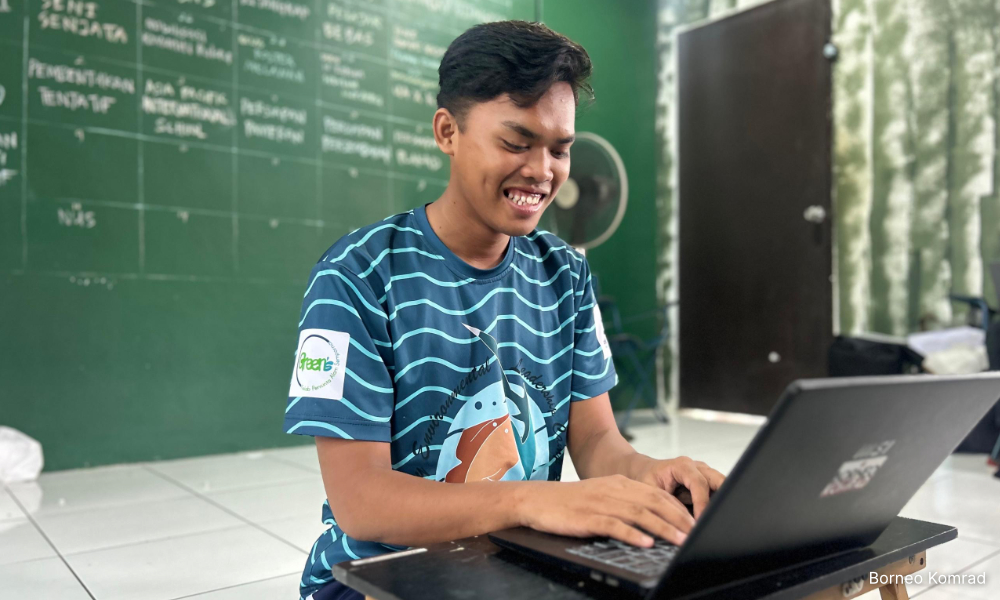
He also manages the university’s community farm, which grows moringa, cili padi, lime, and herbs.
“We even raise chickens for eggs and take care of stray cats.
“This place used to be a dumping ground, but now it’s beautiful, and people are amazed when they visit,” Jai shared proudly.
Since its opening, Universiti Alternatif has attracted at least 20 full-time and part-time students, each with their own dreams and struggles.
While the students have diverse interests, they also study common subjects together, such as literature review, poetry, and the history of their communities.
What does a university mean?
For Borneo Komrad founder and teacher Mukmin Nantang, the university’s creation is a point of pride.
“The students from Sekolah Alternatif were curious about Borneo Komrad because we often told them it was a university student movement.
“They started asking how they could create something similar. So, we asked them, ‘What does a university mean to you?’ That’s how Universiti Alternatif was born,” Mukmin explained.
He and the other teachers guided students to envision their university, even creating questionnaires to understand their interests.
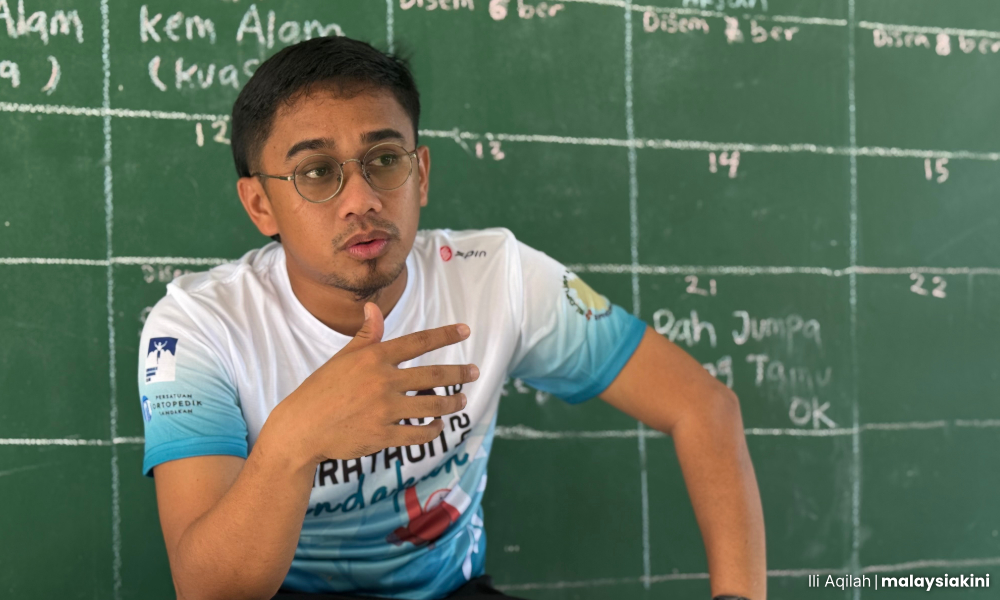
“Some wanted to learn English, Bajau Laut history, graphic design, creative writing, and more.
“There were over 30 subjects they wanted to explore. We then identified teachers, whether from Borneo Komrad, the community, or volunteers who were passionate about teaching,” he said.
Some of the students’ films, produced as part of a filmmaking class, were showcased during the Freedom Film Festival this year.
Elaborating, Mukmin believes the essence of a university isn’t in the size of its building or its student capacity but in its ability to inspire.
“We want to instil a love for knowledge. We want a place where anyone whether undocumented, marginalised, or poor, can seek education, think creatively, and acquire skills to shape their future,” Mukmin said.
He shared that some students are already gaining practical experience, from conservation training to internships with local artists and learning to be tourist guides.
“We asked the student, is being a fisherman or a server wrong? No, it’s not wrong. But that’s not all there is to life.
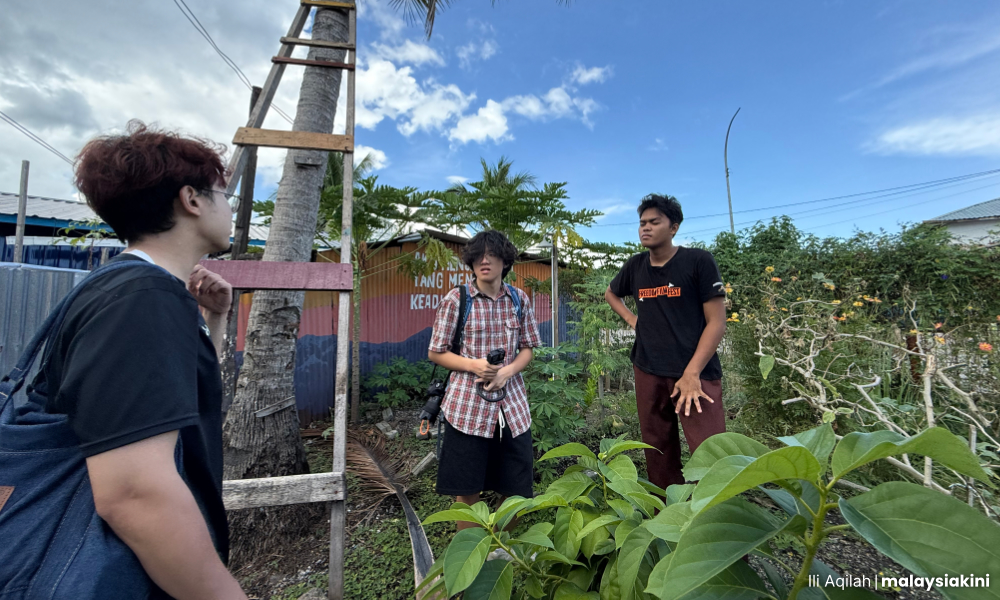
“What we emphasise to our students is this: don’t expect that entering this university will immediately lead to a high-paying job. But it will add value to who you are, giving you more choices in life.
“When you come here, you’re taught to think critically. You enhance yourself and gain skills to diversify your opportunities,” Mukmin concluded.
In the heart of Kampung Air Hujung, Universiti Alternatif is more than just a school.
It offers education as a bridge to reclaim dignity, broaden horizons, and empower students with the skills and knowledge to transform their lives and uplift their communities. - Mkini

No comments:
Post a Comment
Note: Only a member of this blog may post a comment.